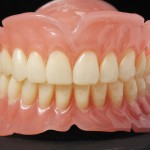
Improvements in oral health have seen reductions in the numbers of patients suffering from edentulism. The range of treatments available for treatments of edentulism has also improved. The aim of this review was to as to analyze studies of the treatment of maxillary, mandibular, or complete edentulism, with special attention paid to the quality of the evidence used to assess the outcomes, risks, adverse effects, and cost effectiveness of a given treatment method.
PubMed, The Cochrane Central Registry of Controlled Trials, Embase, the National Health Service Economic Evaluation Database, and the Health Economic Evaluation Database were searched with no language limits. Reference lists of included publications were also searched. For treatment comparisons randomised and controlled clinical trials were included for risks and adverse effects both pro- and retrospective observational studies were included. The quality of each included study was assessed as high, moderate, or low according to criteria based on the CONSORT and STROBE statements and they rated according to the GRADE guidelines.
- 10 studies of moderate study quality of evidence and 1 study with low quality of evidence regarding outcomes, risks, and adverse effects were included together with three studies (1 of moderate quality and 2 of low quality) on the economic aspects of treatment.
Low-quality evidence showed
- survival rates for implant-supported fixed prostheses of:-
- 95% after 5 years in patients with maxillary edentulism
- 97% after 10 years in patients with mandibular edentulism
- survival rates for implant-supported overdentures of:-
- 93% after 5 years.
In implant-supported fixed prostheses,
- 70 of every 1,000 implants are at risk of failing in the maxilla after 5 years and
- 17 of every 1,000 implants in the mandible are at risk after 10 years.
There was insufficient evidence regarding economic aspects.
The authors concluded
Due to the low quality of evidence found in the included studies, further research with a higher quality of evidence is recommended to better understand the outcomes of treatment for patients with maxillary and/or mandibular edentulism.
Links
Rohlin M, Nilner K, Davidson T, Gynther G, Hultin M, Jemt T, Lekholm U, Nordenram G, Norlund A, Sunnegardh-Gronberg K, Tranaeus S. Treatment of adult patients with edentulous arches: a systematic review. Int J Prosthodont. 2012 Nov-Dec;25(6):553-67. PubMed PMID: 23101035.

[…] Only low quality of evidence currently available for effectiveness and cost effectiveness for treatm… […]